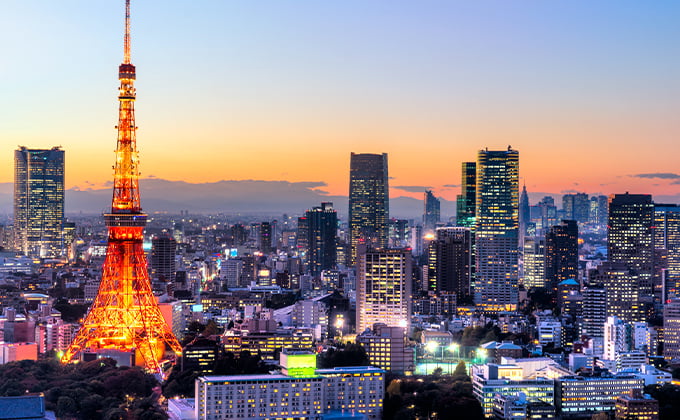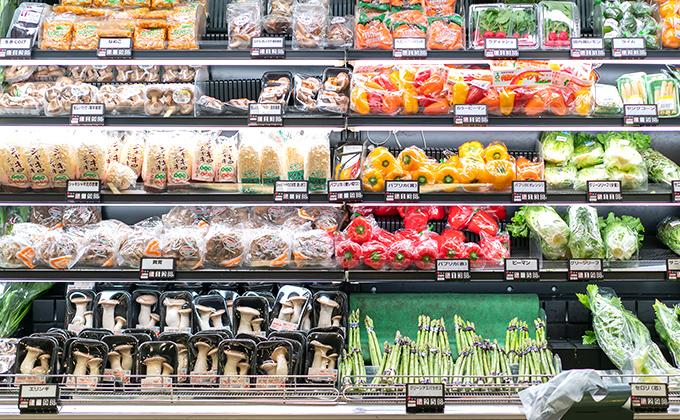Stage 2 Explore Further
Lesson 16/21
Living in Tokyo

Here is some introductory information you may find helpful to start your student life in Tokyo.
About Tokyo
-
The capital of Japan with a population of approximately 13.9 million
-
Great cultural diversity among the citizenry
-
The center of politics in Japan with a number of central government organizations, such as National Diet, the Prime Minister's Office, Ministries and Agencies
-
International business hub with many global company headquarters
-
A mix of traditional and modern Japanese culture, including popular sites such as the Imperial Palace, Asakusa Sensoji (historical temple) and Meiji Jingu (historical shrine) as well as technological advancements and modern arts including Tokyo Skytree, Miraikan (National Museum of Emerging Science and Innovation), and Yayoi Kusama Art Museum
-
Distinctive four seasons, highlighted by cherry blossoms in the spring, summer fireworks shows, the color of autumn leaves, and winter illuminations
-
Spring: March to May (10 to 25℃)
Summer: June to August (25 to 38℃)
Autumn: September to November (15 to 25℃)
Winter: December to February (0 to 15℃)
Transportation
Tokyo is home to one of the world’s best, most extensive, and affordable transportation networks. With your Rikkyo University student ID card, you are entitled to purchase a transportation pass from your dormitory station to Ikebukuro Station at a discounted rate, allowing you unlimited rides on the selected route during the duration of the pass. The discounted pass is available for trains and buses, and the discount is approximately 20-30% off from the regular fare. The discount rate depends on such factors as the distance traveled and the duration of validated dates for the pass. For example, you can save more money by purchasing a 6-month pass as compared to a 1-month or 3-month pass. A 6-month pass from your station to Ikebukuro station would cost 14,040 yen (cost as of October 2023). With your Rikkyo University student ID card, you are also eligible for reduced fares on shinkansens and other specialized trains and buses.
The Rikkyo University Ikebukuro Campus is close to Ikebukuro Station, one of Tokyo’s mega-terminals, which runs Japan Railway (JR) lines, two private railways, and three subway lines as well as a vast bus network.
Food
Simply put, Tokyo is an international culinary paradise. You can choose from inexpensive, yet delectable convenience store fare to Michelin starred restaurants. Grocery stores are plentiful and are stocked with fresh meat and fish as well as seasonal fruits and vegetables.
Several halal options are also available. Pre-made halal foods are sold in the store on the Ikebukuro Campus, and we are happy to announce that we have a halal restaurant on the Niiza Campus.
You can use a "Vege Map" made by a Southeast Asian student group in the College of Intercultural Communication (CIC) to find vegetarian restaurants around the Ikebukuro Campus.
Banking
You will receive guidance on how to open a bank account during the orientation period, and senior students will help you with the application process. We recommend that you use the Japan Post Bank, because as a subsidiary of the Japan postal service, its ATMs can be easily found throughout Japan. In addition, it has a branch office on the Ikebukuro Campus.
To open a bank account, you will need your residence card, passport, Rikkyo university student ID card, and the address of your dormitory. You may open your account with only 1 JPY.
Insurance
Insurance is one of the most important ways to protect yourself in case you get sick or injured during your stay in Japan.
-
National Health Insurance (mandatory)When you enter Japan with a Student Visa, you are required to enroll in the National Health Insurance by law. This insurance covers 70% of medical and dental expenses incurred in Japan.
-
Student Mutual Aid Health InsuranceAll students join the Rikkyo University Student Mutual-Aid Health Insurance and the cost is included in the Academic fees paid during your enrollment. This insurance is worthwhile as the cost is only 3,500 JPY per year, and depending on the type of medical treatment you receive, it may cover the remaining 30% of medical fees not covered by the National Health Insurance. First, you pay for the remaining 30% of the medical bill after the National Health Insurance is applied. Afterwards you can be reimbursed by the Student Mutual-aid Health Insurance. Please note that this insurance does not cover dental expenses.
-
Overseas Travel InsurancePlease do not forget to buy overseas travel insurance in your country before you depart for Japan or whenever you travel outside of Japan. Neither the National Health Insurance, nor the Student Mutual Aid Health Insurance covers you when you are outside of Japan.
Phone and Internet
To set up a mobile phone account, you need to have your residence card, passport, and a Japanese bank account. Major telecommunication companies also sell pre-paid mobile phones, which are cheaper and more convenient for students, who just want a phone number for emergency contact purposes while in Japan. Alternatively, you may consider purchasing a SIM card, which is available from several companies. Please note that you have to make sure that your phone is unlocked, and you will need to be able to pay by credit card. The dormitory and Rikkyo University campuses provide WiFi access for all students and staff. As a general guideline, a paid internet connection plus a mobile phone costs about 8,000 JPY per month.
Back to Explore Further












